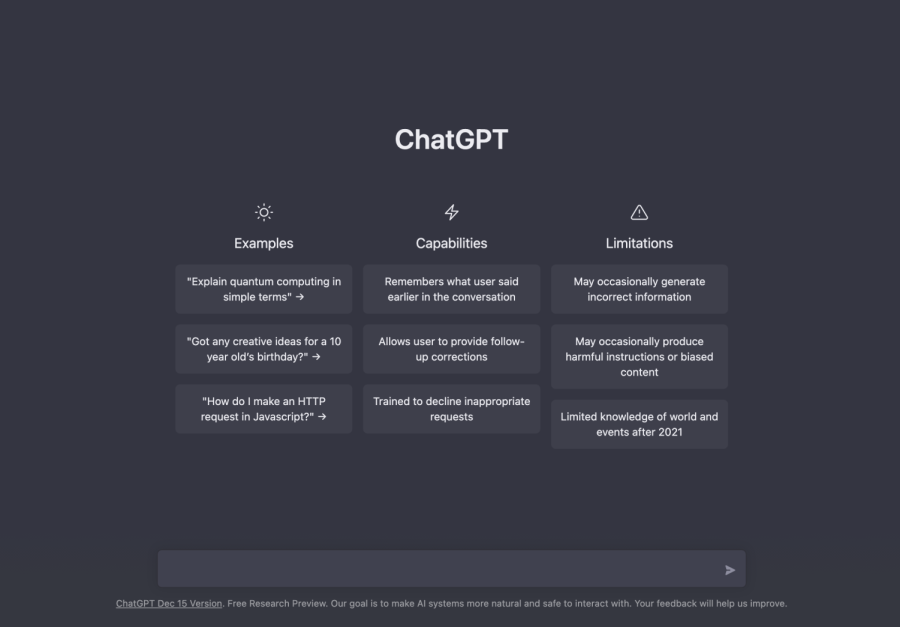Students can now have their own 24/7 tutor. Programmers can ask their computers to write code for them. Any paper can be written in an instant. This is all because of the groundbreaking innovations in artificial intelligence.
With the rising fame of free, publicly-accessible artificial intelligence programs such as ChatGPT and DALL·E 2, students can have any question answered or any image drawn immediately. These programs, created by OpenAI, have the ability to grant the user highly detailed results to the prompts that they give the program. Chatbots, such as ChatGPT, use machine learning algorithms to improve themselves over time in order to produce the most accurate result to virtually any question. Artificial intelligence and chatboxes serve as tools to assist students more directly and personally compared to any other technology currently available.
However, the evergrowing power of these programs has been commonly perceived as a threat to many school systems and the validity of their student’s work. ChatGPT has quickly grown to have a user base of over a million people. This surge is highly accredited to TikTok, with videos surrounding the topic reaching over 8.7 million views. Many of the popular videos posted about the program were created by students, highlighting its ability to write their essays and take their tests. These impressive results have grabbed the attention of many people seeking to use them to finish their own assignments.
Students are heavily relying on artificial intelligence to write their papers and answer their questions. Instead of using it as a guide and source to help with assignments, students have been taking advantage of these programs. The OpenAI program can produce answers to the questions students may ask, but these answers are received from a database and usually result in large amounts of plagiarism marked on their work.
Advancements in technology have created a life of ease, where more tasks continue to need less human interaction to be completed. Although this may seem ideal, it could actually be a significant issue for future generations. According to DevriX, the average attention span of humans in 2022 is just eight seconds. It’s feared that if people continue to rely on computer programs, like ChatGPT and DALL-E 2, this average will decrease to a mindblowing number.
OpenAI has pledged to guarantee that its research in artificial intelligence will focus on being beneficial and safe for all humanity. As technology grows to compete with humans, more companies need to consider the effects that their innovations will have on society. Taking steps such as prioritizing safety, ensuring the benefit for all, and acknowledging possible consequences that may derive from artificial intelligence.
It is just the beginning of the age of artificial intelligence and a computer-run society. As humanity’s dependence on technology grows, so does its fear of being replaced by technology. Those leading the endeavors into the new age should be required to report all measures that they are taking in order to guarantee that their program will be beneficial to the rest of humanity.
Artificial intelligence programs have the potential to be the future, as long as they are made to assist humanity, not replace it.


